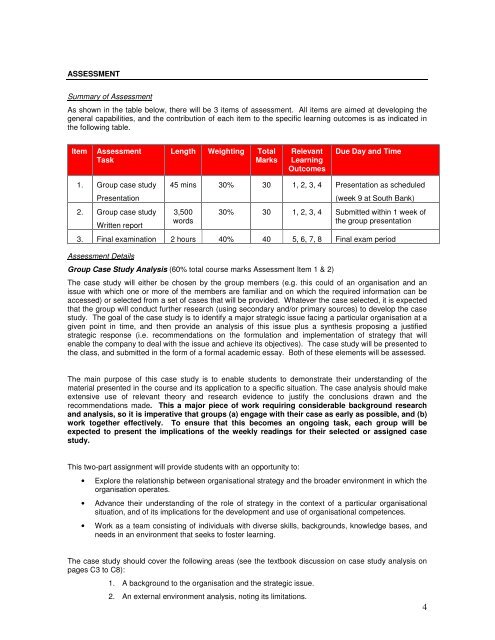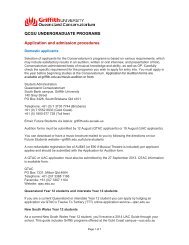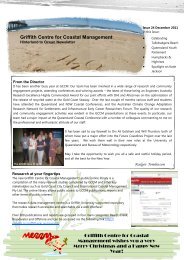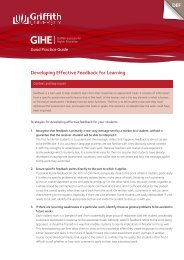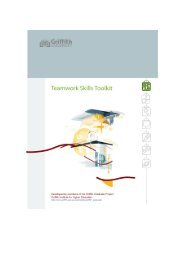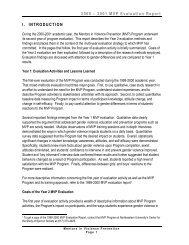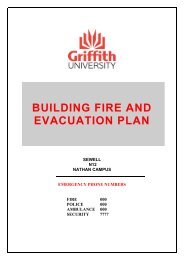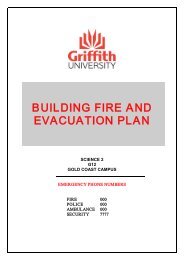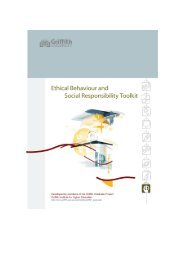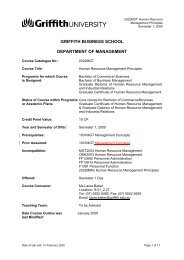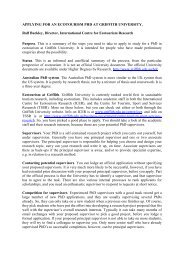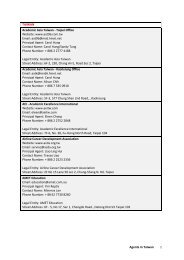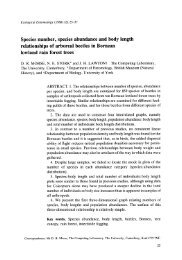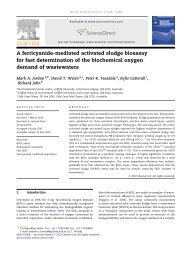7907MGT Managing Strategically Semester 2 ... - Griffith University
7907MGT Managing Strategically Semester 2 ... - Griffith University
7907MGT Managing Strategically Semester 2 ... - Griffith University
You also want an ePaper? Increase the reach of your titles
YUMPU automatically turns print PDFs into web optimized ePapers that Google loves.
ASSESSMENT<br />
Summary of Assessment<br />
As shown in the table below, there will be 3 items of assessment. All items are aimed at developing the<br />
general capabilities, and the contribution of each item to the specific learning outcomes is as indicated in<br />
the following table.<br />
Item<br />
Assessment<br />
Task<br />
Length Weighting Total<br />
Marks<br />
Relevant<br />
Learning<br />
Outcomes<br />
Due Day and Time<br />
1. Group case study<br />
Presentation<br />
2. Group case study<br />
Written report<br />
45 mins 30% 30 1, 2, 3, 4 Presentation as scheduled<br />
3,500<br />
words<br />
(week 9 at South Bank)<br />
30% 30 1, 2, 3, 4 Submitted within 1 week of<br />
the group presentation<br />
3. Final examination 2 hours 40% 40 5, 6, 7, 8 Final exam period<br />
Assessment Details<br />
Group Case Study Analysis (60% total course marks Assessment Item 1 & 2)<br />
The case study will either be chosen by the group members (e.g. this could of an organisation and an<br />
issue with which one or more of the members are familiar and on which the required information can be<br />
accessed) or selected from a set of cases that will be provided. Whatever the case selected, it is expected<br />
that the group will conduct further research (using secondary and/or primary sources) to develop the case<br />
study. The goal of the case study is to identify a major strategic issue facing a particular organisation at a<br />
given point in time, and then provide an analysis of this issue plus a synthesis proposing a justified<br />
strategic response (i.e. recommendations on the formulation and implementation of strategy that will<br />
enable the company to deal with the issue and achieve its objectives). The case study will be presented to<br />
the class, and submitted in the form of a formal academic essay. Both of these elements will be assessed.<br />
The main purpose of this case study is to enable students to demonstrate their understanding of the<br />
material presented in the course and its application to a specific situation. The case analysis should make<br />
extensive use of relevant theory and research evidence to justify the conclusions drawn and the<br />
recommendations made. This a major piece of work requiring considerable background research<br />
and analysis, so it is imperative that groups (a) engage with their case as early as possible, and (b)<br />
work together effectively. To ensure that this becomes an ongoing task, each group will be<br />
expected to present the implications of the weekly readings for their selected or assigned case<br />
study.<br />
This two-part assignment will provide students with an opportunity to:<br />
• Explore the relationship between organisational strategy and the broader environment in which the<br />
organisation operates.<br />
• Advance their understanding of the role of strategy in the context of a particular organisational<br />
situation, and of its implications for the development and use of organisational competences.<br />
• Work as a team consisting of individuals with diverse skills, backgrounds, knowledge bases, and<br />
needs in an environment that seeks to foster learning.<br />
The case study should cover the following areas (see the textbook discussion on case study analysis on<br />
pages C3 to C8):<br />
1. A background to the organisation and the strategic issue.<br />
2. An external environment analysis, noting its limitations.<br />
4


